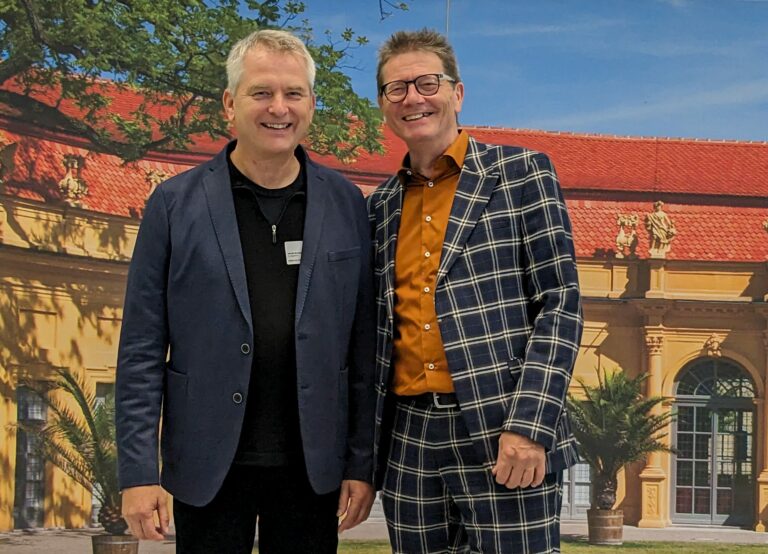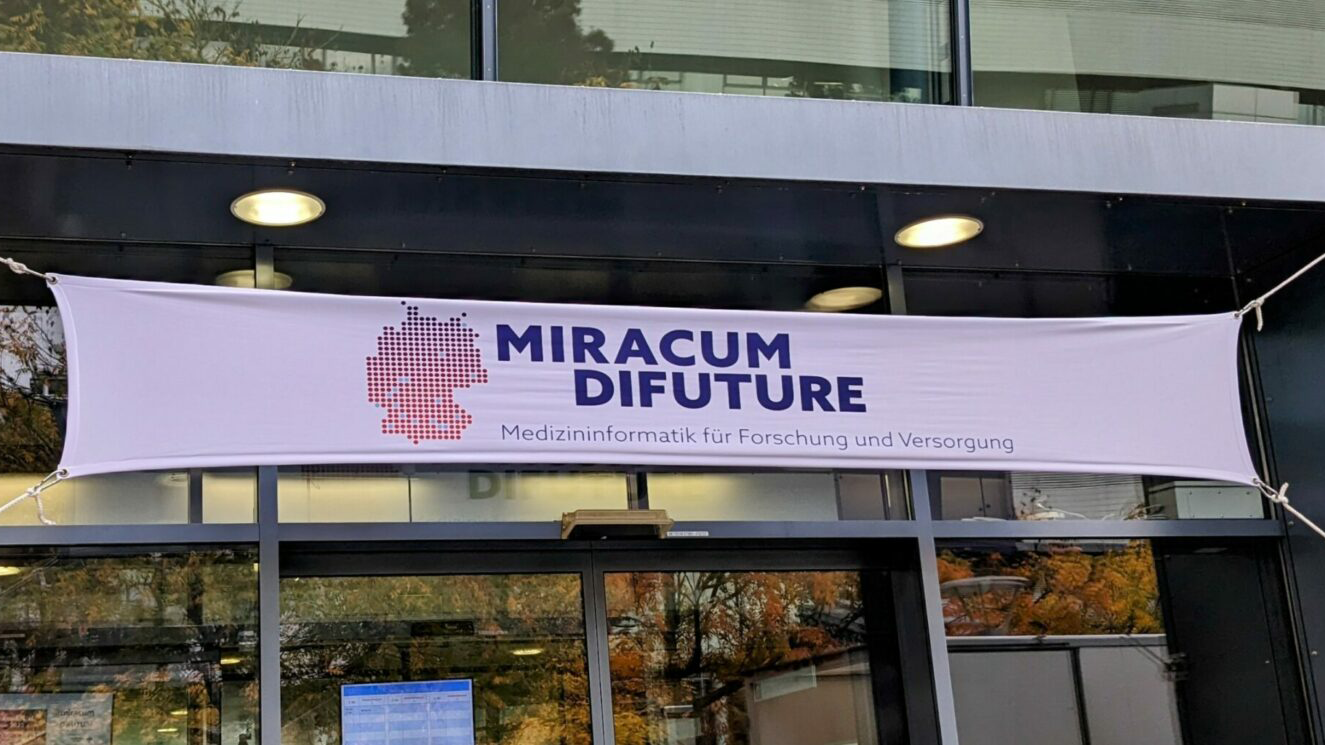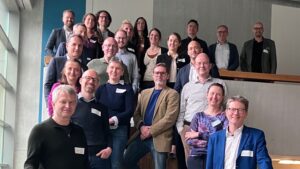From October 9th to 10th, 2023, many members of the Medical Informatics Initiative (MII) gathered in Erlangen. This was for the first joint symposium of the two consortia, MIRACUM and DIFUTURE – and it was a resounding success.

Under the motto “One MII,” this year’s MIRACUM-DIFUTURE Symposium offered a diverse program. After opening remarks, the scientific program kicked off with international keynotes on enhancing data security through machine learning methods (Prof. Dr. Bradley Malin), the Trusted Research Environment of the Swiss Personal Health Network (Dr. Katrin Crameri), and the Research Patient Data Registry at Harvard University (Prof. Dr. Shawn Murphy).
The following session focused on the next generation. Six out of a total of 10 MII junior research groups from MIRACUM and DIFUTURE introduced their teams and presented their current research activities.
The first day of the symposium concluded with another keynote address by Prof. Dr. Lucila Ohno-Machado on federated analysis and its contribution to precision medicine.
Afterwards, the social part of the day began. To end the day, guests gathered in the evening at the Redoutensaal in Erlangen for relaxed conversations in a casual atmosphere. A special highlight awaited the guests! Alongside Mr. Sebastian C. Semler on the piano, Katrin Crameri enchanted the audience with her voice. A glimpse of her performance can be seen in the following video:
You can find another recording at the following link.
The second day of the symposium began with a session focusing on local projects from Erlangen. Jasmin Ziegler presented the oncological real-world data platform of the Bavarian Center for Cancer Research (BZKF). Dr. Sebastian Bickelhaupt and Prof. Dr. Matthias May reported on projects emphasizing imaging. The synergy resulting from collaboration with the Erlangen Data Integration Center, particularly through the Digital Health Innovation Platform (d.hip) and Radiology in projects like RACOON/BORN and within BZKF, was highlighted as a crucial pillar for the success of these projects.
The subsequent presentations were dedicated to the MII. The focus initially turned to four new Module 3 projects (PM4Onco, CALM-QE, GeMTeX, and PrivateAIM), followed by an overview of key MII projects FDPG+, BaseTRaCE, fit4translation, and the remaining Module 2b projects.
The final two presentations provided broader perspectives. Prof. Dr. Ulrich Sax presented the current status of NFDI4health, and Prof. Dr. Oliver Kohlbacher introduced the audience to the infrastructure for genomic medicine in Germany.
Once again, this year’s symposium impressed with its diverse program. Particularly noteworthy was the exchange between locations and consortia, facilitating lively discussions, idea exchanges, and collaboration agreements.
We extend our gratitude to all speakers, guests, hosts from Erlangen, and the organizing team, including the helping hands who made this great event possible.
We look forward to the upcoming symposium on October 10-11, 2024, in Munich!



